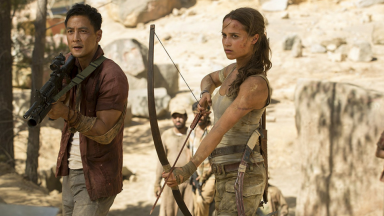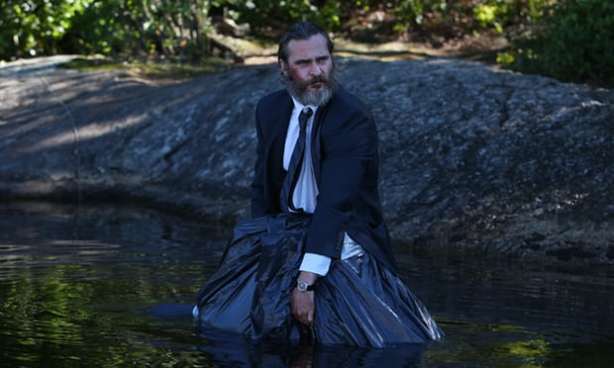 By Ted Chiang
By Ted Chiang
The first thing to note is that this isn’t a novelisation of the movie, instead it’s a repackaged anthology of stories by American science fiction writer Chiang, which does include Story of Your Life, the novella the film was adapted from, but also contains seven other stories. Given there’s only eight stories in the book I’ll talk a little about each one. Some I liked, some I was less keen on. C’est la vie…
The anthology opens with Tower of Babylon, a curious tale set in an alternate world where the titular tower was actually built. It took me a little while to get into this, it goes on a bit and it feels a tad repetitive at times (but this might have been intentional to serve as a metaphor for the time taken to climb the tower) and the ending, where it turns out cosmology functions differently in this universe, left me cold, but Chiang’s world building inside the tower that’s so huge it takes a year to climb is certainly evocative, and it’s original if nothing else.
Next up is Understand, where a man given a revolutionary drug to regenerate brain tissue following an accident finds his intelligence increasing at an exponential rate. I liked this, especially the fact that the protagonist starts to become quite alien in his interactions with the rest of humanity, and despite his superior intellect he doesn’t seem to really do anything with it. It reminded me a lot of the film Lucy, which the story obviously predates. Only the ending lets this down.
Division by Zero is something I just couldn’t get my head around, as a genius mathematician finds her mind unravelling when she discovers a fundamental flaw at the heart of mathematics. It left me a trifle cold if I’m honest.
Story of Your Life is probably the best tale in the book, and you can see why someone in Hollywood decided this would make a great science fiction movie. Chiang’s story delves more into the nature of time, or more specifically the perception of time, and explains why the Heptapods see things so differently. There’s a lot of science here, and even some diagrams, yet Chiang never lost me and there remains an emotional core to the story that’s mirrored in the film, and the end did bring a lump to my throat.
Seventy-Two Letters is another tale bordering on fantasy, set in an alternate Victorian England where golems are an everyday part of life, each bought into existence by the writing of names, each of which can command a golem to do different things. That’s where the 72 letters of the title come from. There’s a hefty dash of Jewish mythology here, but Chiang grounds it. Much like Tower of Babylon this is a universe where the natural laws we are used to don’t function the same, only here it’s the basis of biology, and specifically reproduction, that’s different. It’s certainly inventive but I think Chiang asked more of a leap of faith than I was prepared to give it. Maybe if I’d just gone with it I’d have enjoyed it more.
The Evolution of Human Science is a short sharp tale positing how learning would look in a world where super intelligence existed. It’s ok but it’s a trifle too short to really grab you.
Hell is the Absence of God is another alternate Earth story, this time one where Angelic visitations are commonplace, but where they’re perceived almost like natural disasters, and each time an Angel manifests on Earth destruction is wrought in the immediate vicinity and as many people are likely to be injured or killed as are those who are healed by the Angel’s power. It’s a very interesting story around faith, and I loved the idea of Angel’s being perceived, well, as an act of God, with no rhyme or reason sometimes to who they kill and who they save. Infuriatingly yet again it’s the ending that lets it down.
The final story is perhaps my second favourite. Liking What You See: A Documentary posits an intriguing near future where a science known as Calliagnosia can affect your perception so that you no longer recognise if someone is aesthetically beautiful. The story is told in epistolary form, in interviews with people on both sides of the argument. It’s an interesting and very even handed take on something that could change humanity, perhaps for the better, perhaps not, and Chiang is smart enough to leave the interpretation to the reader.
Over all Chiang seems to be an incredibly imaginative writer, coming up with radical and inventive ideas. Whilst these are universally intriguing, the execution is variable. At times he pitches the science at a level I could understand, at times it goes over my head. Several of his more fantastical tales require a suspension of disbelief and I found this harder to undertake in some stories than others.
In addition his prose is a little too academic and anaemic at times. It isn’t that he doesn’t weave emotion into his stories, just that at times is writing felt a little dry, to me.
Still I did enjoy the book and wouldn’t rule out reading more of his stories in future, though I can’t say I feel the urge to suddenly rush out and buy everything he’s ever written!




 Joe (Phoenix) is a contract killer with a very particular specialism. He rescues children from sexual exploitation and, if required (and it usually is), exacts a brutal and bloody revenge on those responsible for the child’s torment. He’s no clean-cut hero however. He’s a broken man suffering from PTSD, not only from his experiences in the Gulf War, but also from his own childhood trauma.
Joe (Phoenix) is a contract killer with a very particular specialism. He rescues children from sexual exploitation and, if required (and it usually is), exacts a brutal and bloody revenge on those responsible for the child’s torment. He’s no clean-cut hero however. He’s a broken man suffering from PTSD, not only from his experiences in the Gulf War, but also from his own childhood trauma.





 By Philip K. Dick
By Philip K. Dick